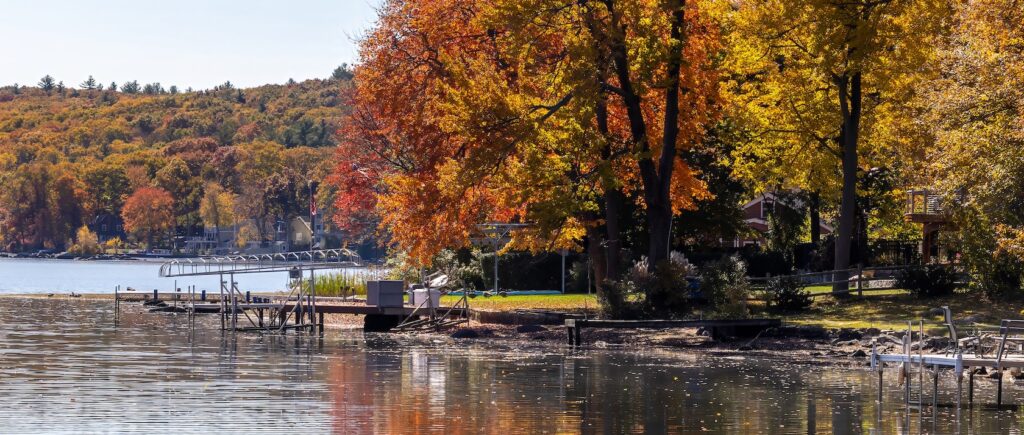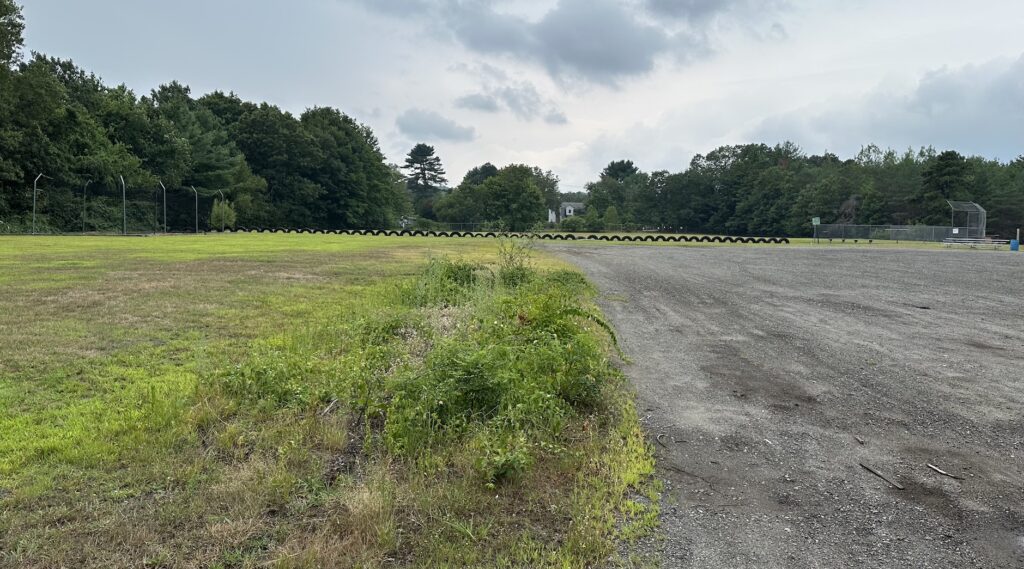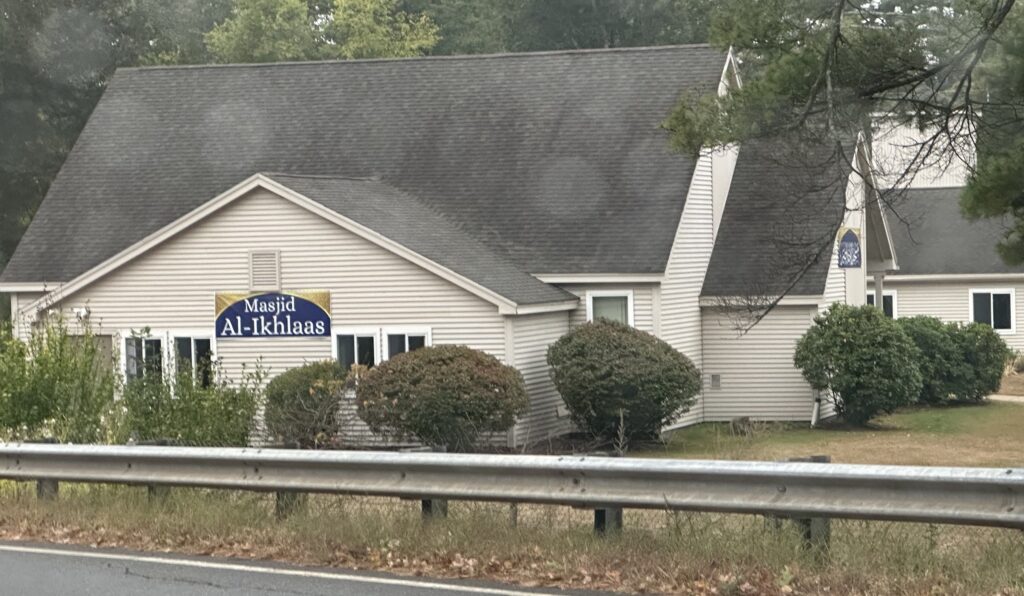The Parks & Recreation Commission at its two-hour hybrid meeting Thursday evening received an overview of the revised design plans for the public pickleball courts slated to be built off of Fruit Street, across from the dog park.
Consultant Andrew Leonard explained that the plan includes four permanent pickleball courts with permanent nets. Four others will have an overlay so they can be converted into a tennis court.
A tennis court was required as part of the project when Town Meeting approved funding last May. The land where this will be built has been designated for recreational use according to the Fruit Street Master Plan.
The previous design would have cost $880,000, which was more than the $775,000 allocated. Design modifications reduced the amount of paving and fencing and lowered the estimate to $743,000.
The money for the project was appropriated from Community Preservation Act (CPA) funds, explained chair Dan Terry. It is not a capital budget request. A 2 percent surcharge to the annual real property tax is the source of this funding pool. Under the CPA, at least 10 percent of the funding raised must be allocated among three categories — open space, historic preservation and affordable housing, according to the state website. The remaining 70 percent can be allocated to any of these categories, as well as recreation.
Leonard added that the plan now includes 28 parking spaces, including two accessible ones. Currently there is an overflow lot about 100 feet down the road, according to Parks & Rec Director Jay Guelfi. There also will be a solar-powered security camera for the area.
The Mary C. O’Brien Pratt Trail currently runs through the proposed area. Chuck Dauchy, director of Hopkinton Area Land Trust (HALT), said at the meeting that the group is willing to alter the trail to make the project work and commended Guelfi for his outreach efforts to HALT throughout the planning process.
There will be a small shed between the courts and the parking area to store nets and equipment. A bike rack also is included, as well as a shade structure similar to the one at the dog park. The courts will not include lighting or water because installing the capacity for electricity would be cost prohibitive.
Leonard explained the schematics of the design. A typical pickleball court has a higher fence along the perimeter and a lower net at the center of each court, he said. Because the ball used is heavier than a tennis ball, it doesn’t travel as far. The standard color for a pickleball court is blue, and the out-of-bounds area resembles a U.S. Open green tennis court. He proposed that the “no poach” area at the center of the courts be light blue. There will be white lines for the pickleball courts and yellow lines delineating the tennis court.
The court’s surface will be bituminous asphalt. Pickleball enthusiasts who attended the meeting raised concerns about the size of the fence and the maintenance of the courts. Leonard said that with proper base preparation using standards set by the U.S. Tennis Association, the courts should last about a decade.
Volunteers will be needed to maintain the courts, Terry said, but he feared that their efforts would lead to a sense of entitlement.
“We hope it’s a labor of love,” he said. “But that group isn’t going to own it.”
The pickleball court and the parking lot will be designed to be slightly higher in elevation to help surface runoff flow into two retention areas bordered with perennials, Leonard said. The soil under the current foot of fill is “excellent sandy gravel” that also will help with water percolation.
Guelfi added that the Boy Scouts will be building a kiosk to post bulletins and rules. Signage also was discussed. He said he hoped that the tennis court could be used to offer tennis lessons.
The project will go out to bid in early February and is expected to be completed by late summer.
Rock climbing school seeks to use College Rock
The other major issue raised before the commission was a proposal by Daniel Vickers, the owner of and instructor at the Greater Boston Climbing School, to use College Rock for commercial rock climbing instruction and guided trips. He is a member of the American Mountain Guides Association. He said that College Rock is one of two areas within an hour of Boston that is particularly suitable for traditional climbing (often called “trad climbing”). This style allows a climber to place gear on the rock that can be removed, as opposed to using ropes.
Vickers said he would lead groups of up to six people. He proposed charging a flat fee of $35 to $50 or a scaled fee of $15 per person per day. It is illegal for a company to operate without a permit, he said. Vickers offered to share sample permits from similar entities he ran in Alabama and Georgia as examples.
Commissioners raised concerns about liability, the lack of a parking area, damage to the rock surface and commercial use preventing access by residents.
“It’s a little tricky from a community standpoint,” said commissioner Liisa Jackson, who noted that she has participated in rock climbing for 20 years. She suggested that Vickers may want to offer classes through Parks & Rec. Guelfi said that if it eventually is approved, it would expand the department’s activity offerings.
While Vickers said he has insurance, Terry stressed that the commission needed to seek legal advice and perform “due diligence.”
“I think we’re going to have a bunch of questions,” Terry said.
Vickers said that he wanted to build a good relationship with the commission and that this was an initial step. Terry invited Vickers to attend a meeting next month.
Cricket continues to gain momentum, skiing popular
Guelfi said that cricket is “coming like a freight train” since the cricket pitch presentation last month to the Community Preservation Commission for a $1 million funding request that will go before Town Meeting. A group recently approached him to start a youth cricket league.
He added that the skiing program started this week and has proven to be wildly popular.
“Post-COVID, they are embracing it even more,” Guelfi said. The only issue is a shortage of bus drivers prevented the program from obtaining a third bus.
The next meeting will be held on Thursday, Jan. 26, at 5:30 p.m.





















Great Job Park and Rec